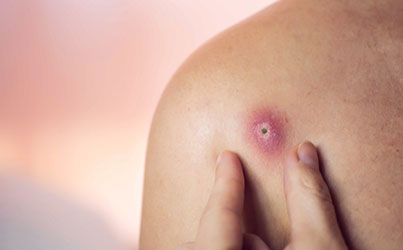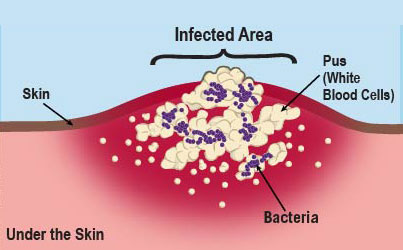A skin abscess, also called a boil, is a bump that appears within or below the skin’s surface. This bump is usually full of pus or translucent fluid. It’s typically due to a bacterial infection.
A skin abscess may appear on any part of the body. However, abscesses most commonly develop on the back, face, chest, or buttocks. Skin abscesses can also appear in areas of hair growth, such as the underarms or groin.
There are cases in which an abscess can lead to serious, potentially life-threatening complications if left untreated.


Abscess Incision & Drainage Procedure:
In this procedure, Once the abscess has been located, the surgeon drains the pus using the needle. They may make a small incision in your skin over the abscess, then insert a thin plastic tube called a drainage catheter into it.
The catheter allows the pus to drain out into a bag and may have to be left in place for up to a week.
This procedure may be carried out as a day case procedure, which means you'll be able to go home the same day, although some people will need to stay in hospital for a few days.
As with the incision and drainage procedure for skin abscesses, percutaneous drainage may leave a small scar.
Surgery:
You may need to have surgery if:
The type of surgery you have will depend on the type of internal abscess you have and where it is in your body. Generally, it involves making a larger incision in your skin to allow the pus to be washed out.
